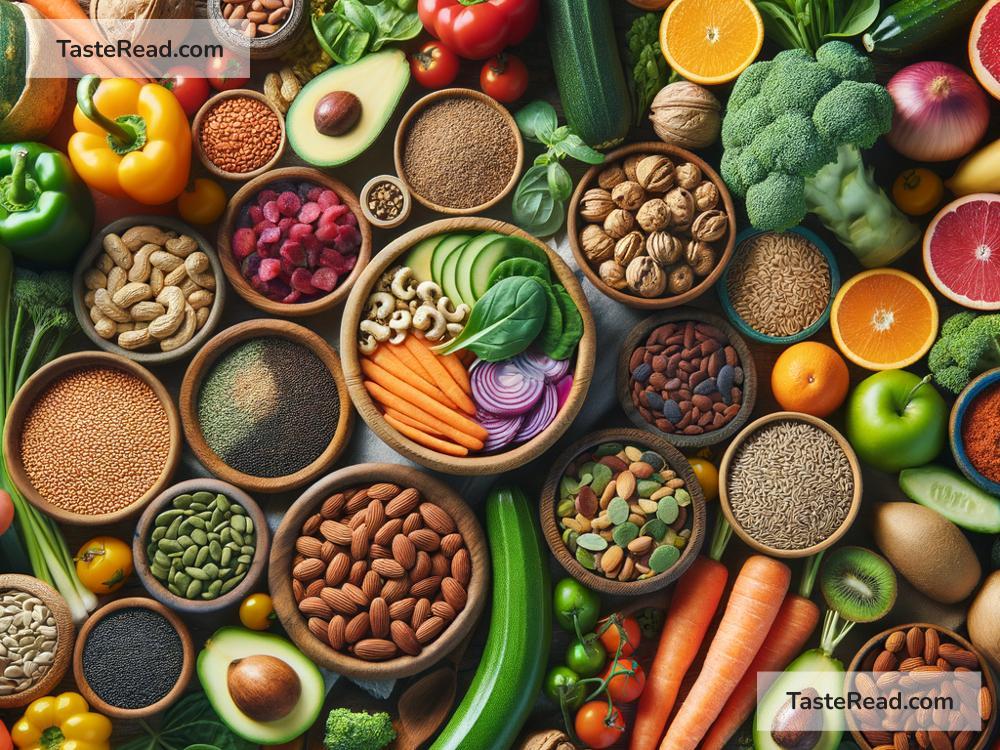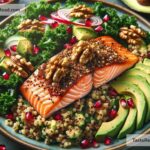Foods for Enhancing Trace Element Balance: A Simple Guide
Maintaining a proper balance of trace elements in your body is essential for good health. Trace elements are small amounts of minerals that play huge roles in keeping our bodies functioning properly. These include iron, zinc, selenium, copper, iodine, manganese, chromium, and molybdenum. Without them, your body may struggle with energy production, a strong immune system, and overall wellness. Luckily, there are many foods that can help you achieve the right balance.
In this article, we’ll explore some of the best foods for enhancing trace element balance in simple terms. Whether you’re looking for more energy, a stronger immune system, or simply want to feel healthier, these tips are easy to follow and incorporate into your daily meals.
What Are Trace Elements?
First, let’s define trace elements. You’ve likely heard of vitamins like Vitamin C or D, but minerals like iron and zinc are equally important. Trace elements are minerals that your body needs in small amounts—but their impact is massive. For example, iron helps carry oxygen throughout your body, while zinc supports healing and immunity. Even though these minerals only make up a tiny fraction of your body, their roles are crucial for maintaining life.
Why Food Choices Matter
Your body doesn’t create trace elements naturally, so you need to get them from food. If your diet is missing certain foods, you could end up with deficiencies. This might lead to tiredness, weaker immunity, poor digestion, or other health issues. The good news is that by eating a diverse and balanced diet, you can easily get the trace elements your body needs.
Foods Rich in Trace Elements
Here’s a breakdown of specific trace elements and the best foods to enhance their balance:
1. Iron
Iron is vital for making hemoglobin, which carries oxygen in your blood. If you’re low on iron, you might feel tired all the time.
- Foods to Try: Spinach, lentils, chickpeas, kale, red meat, liver, and fortified cereals.
- Tips: Pair iron-rich foods with Vitamin C sources (like oranges or bell peppers) to improve iron absorption.
2. Zinc
Zinc supports healing, immunity, and cell growth. It’s especially important during recovery from illnesses or injuries.
- Foods to Try: Shellfish (like oysters), beef, pork, pumpkin seeds, chickpeas, and cashews.
- Tips: Vegetarians can focus on nuts, seeds, and legumes for zinc.
3. Selenium
Selenium is a powerful antioxidant that helps protect your cells from damage and boosts thyroid function.
- Foods to Try: Brazil nuts (just one nut can give you all the selenium you need for the day!), eggs, fish (like tuna or salmon), and mushrooms.
- Tips: Avoid excessively high doses of selenium, as too much can be harmful.
4. Copper
Copper helps your body produce energy and supports the development of healthy connective tissue.
- Foods to Try: Dark chocolate, nuts (like almonds), seeds (like sunflower seeds), organ meats (like liver), and shellfish.
- Tips: Balance copper intake with zinc-rich foods, as too much copper can interfere with zinc absorption.
5. Iodine
Iodine is essential for healthy thyroid function, which controls your metabolism and energy levels.
- Foods to Try: Iodized salt, seaweed, cod, shrimp, dairy products (like yogurt or milk), and eggs.
- Tips: If you use non-iodized salt or follow a plant-based diet, consider eating more iodine-rich foods like seaweed.
6. Manganese
Manganese helps with bone health and supports enzymes that strengthen tissues and improve digestion.
- Foods to Try: Whole grains (like oats or brown rice), nuts (like pecans or walnuts), leafy greens (like spinach), and tea.
- Tips: Keep your diet diverse to get enough manganese without overloading your system.
7. Chromium
Chromium helps regulate blood sugar levels, which can be especially helpful for those with diabetes or insulin sensitivity.
- Foods to Try: Broccoli, whole grains, eggs, potatoes, and lean meats.
- Tips: Eating whole, minimally processed foods is the best way to include chromium in your diet.
8. Molybdenum
Molybdenum plays a role in detoxification and processes nutrients in your body.
- Foods to Try: Legumes (like lentils), leafy green vegetables, nuts, and milk.
- Tips: Most people get enough molybdenum from a normal diet, so no need to worry about taking supplements.
Simple Tips for Getting Trace Elements Naturally
-
Eat a Balanced Diet: Include a variety of fruits, vegetables, whole grains, lean proteins, and nuts. Diversity in your diet ensures you’re getting different nutrients, including trace elements.
-
Minimize Processed Foods: Junk foods often lack trace elements or contain harmful additives that deplete nutrients in your body.
-
Choose Whole Foods: Go for whole grains instead of refined grains or sugary cereals.
-
Cook Smart: Some minerals can be lost when boiling food for long periods. Steaming or baking can help retain more nutrients.
Closing Thoughts
Trace elements might be small, but their importance to your health is huge. Eating foods rich in iron, zinc, selenium, copper, iodine, manganese, chromium, and molybdenum is key for maintaining energy, immunity, and overall well-being. Remember to keep your diet varied, colorful, and minimally processed to get the best mix of trace elements naturally.
By adding these nutrient-rich foods to your plate, you’ll feel more energized, healthier, and ready to tackle your day. Making small changes to your meal plan can make a big difference, so start today! Are you ready to thrive?


